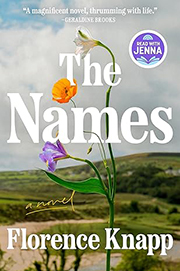
| Mon
Book Info
Subscribe
| |||
Dear Reader, I'm on vacation this week, but I'm featuring some recipes that are guaranteed winners for a summer potluck. Today's recipe is easy to make, and it keeps in the refrigerator for one week--not that there's usually any leftovers. If you've never read the story behind my Skunk Bean recipe, get out a deck of playing cards and get ready for a treat. For forty years Skunk Beans has been one of my go-to recipes, but I never knew the story behind the beans until I was looking through some old recipes I'd found in my mother's kitchen cupboard after she passed away. The recipe was written on an old, folded piece of paper and read the heading, "Beans for Skunk Party" instantly I started smiling because at that moment, I realized how the Skunk Beans got their name. Almost every other Sunday evening the Tindell clan (including my dad, his four sisters, and grandma and grandpa Tindell), got together to play some serious Euchre. The kitchen in Grandma's house was so small when the table was pulled open to seat everyone, you could barely walk around it. But that didn't matter. Get out the blue and red chips, which represented pennies--but it wasn't about the money--it was all about winning the game and trying to "skunk" Euchre isn't a complicated game, but until you've played awhile, the table talk can sound like a foreign language. "Fishing out, dead-set legend, the ribbit, farm hand or no ace/no face, follow suit, trump, and skunked--which means that you and your partner lost the game without scoring one single point. Rumor has it that in some Euchre circles a team that gets skunked, also gets a "bum run." (If you and your partner get skunked you must run around a predetermined route--naked!) I was an only child who sat by herself in the living room watching "The Wonderful World of Disney" (because none of my dad's sisters brought their children along), and there was a wall between the kitchen and me, so as far as I know none of my relatives ever did a bum run. Instead, whoever got skunked had to bring the Skunk Beans to the next Sunday evening Euchre party and I remember my mother bringing them almost every week! SKUNK BEANS 8 bacon strips - very crisp Combine all ingredients. Cover and bake at 350 degrees for one hour. Uncover and bake for another 1/2 hour. Thanks for reading with me. It's so good to read with friends. Suzanne Beecher P. S. This week we're giving away 10 copies of the book The Names: A Novel by Florence Knapp. Click here to enter for your chance to win. | |||
|
October 1987 Cora's mother always used to say children were whipped up by the wind, that even the quiet ones would come in after playtime made wild by it. Cora feels it in herself now, that restlessness. Outside, gusts lever at the fir trees behind the house and burst down the side passage to hurl themselves at the gate. Inside, too, worries skitter and eddy. Because tomorrow—if morning comes, if the storm stops raging—Cora will register the name of her son. Or perhaps, and this is her real concern, she'll formalize who he will become. Cora has never liked the name Gordon. The way it starts with a splintering sound that makes her think of cracked boiled sweets, and then ends with a thud like someone slamming down a sports bag. Gordon. But what disturbs her more is that she must now pour the goodness of her son into its mold, hoping he'll be strong enough to find his own shape within it. Because Gordon is a name passed down through the men in her husband's family, and it seems impossible it could be any other way. But this doesn't stop her arguing back and forth with herself, considering all the times she's felt a person's name might have influenced the course of their life. Amelia Earhart. The Lumière brothers. Only last week, she'd noticed a book on her husband's bedside table, Clinical Neurology by Lord Walter Russell Brain. "Doesn't that strike you as odd?" she'd asked. "Coincidence," Gordon had replied. "Although you wouldn't believe the number of urologists called Burns, Cox, and Ball. And, actually, Mr. Legg is pretty common in orthopedics." She rests the crook of a bent finger against the warmth of the baby's cheek as though his skin might transmit some vital message. Of what he wants. Of who he might be. But before anything can be divined, something crashes against the back wall of the house—a sound both heard and felt. She draws the baby closer as the security light flickers on outside, illuminating the roiling silhouettes of the firs. Vast and looming, then receding, before being made large again. She hears Gordon emerge from the next room and belt down the stairs, pictures him striding pajamaed across the dark of the living room toward the patio doors, then standing in the spotlight, squinting without his contact lenses, trying to determine what's out of place. She imagines him reduced by the looming threat of the trees, the immensity of the storm. A few minutes later he opens the door to the nursery, and Cora feels a draft of cold air, as though it's attached itself to his clothing and followed him up the stairs. "It was just the watering can," he says. "Come back to bed now." "Soon," she agrees. But she doesn't want to leave the baby alone and so she lets him sleep on, his head heavy against her arm as the sounds of the storm meter out the minutes of night unraveling into day. Gordon is on the phone to a colleague already at the practice. Cora overhears them discussing the lack of warning in the previous night's weather report, then the possibility of canceled appointments and staff not getting in. She makes breakfast one- handed, the baby preoccupying her other, as she helps Maia tune in to a local radio station to listen as names of schools closed by storm damage are read out. Maia's comes halfway down a roll call of unfamiliar primaries, eliciting a small, delighted smile and a silent thumbs-up, which falls to her side as her father enters the room. Reaching for a slice of toast before he heads off, Gordon says, "My parents are coming on Sunday. Make sure you get to the registrar's today." Two statements, side by side, delivered as though one justifies the other. "And don't cut across the common," he adds. Flashers, murderers, and, today, trees that might still come down in the aftermath. The houses on their street are all stucco-pillared fake grandeur, front gardens composed of neat, low-lying shrubs, overlooked by identikit blank windows. When they step outside, there's little evidence of the storm. But beyond the cul-de-sac, the landscape has that same blinking unreality of emerging from a cinema in daylight. Trees lean at odd angles. Flattened fence panels leave gaping invitations into back gardens. A rotary washing line lies collapsed across the pavement. A few doors up, a man's shirt is caught on a privet hedge, pegs still pinched at its shoulders. Maia's eyes flit about, their town suddenly a spot-the-difference puzzle. They walk along the edge of the common, steering the pram around fallen branches, stopping to look at an oak's vast, wormy rootball, dripping with clods of mud. Maia crouches in the hollow beneath. "Careful not to get your coat dirty," Cora says. 'His words'. Her own instinct is to encourage Maia to lie down, to breathe in the rich, musky scent of the earth, to imagine herself as a fox cub curled up nose to tail. She's nine, on the cusp of being too old to want to do these things. Maia clambers out and dusts off her coat. At the zebra crossing, where the amber globe of a Belisha beacon lies decapitated beside the road, they wait for the cars to stop. Maia looks toward the pram and says, "Why don't I have your name, if he'll have Dad's?" Cora raises a hand to thank a driver. "Ah, but you do. It's just something no one else knows about," she says as they cross. "Maia means mother. I can show you in my book of baby names when we get home." "Does it actually?" Cora is surprised at how happy this makes her daughter. "So why aren't we calling him something that just means Dad?" Cora looks at the baby, whose full-moon face peeps out from his oversized snowsuit. She stops pushing for a moment and leans into his cocoon of talc-scented air. His eyes flutter with excitement on meeting hers, his swaddled limbs cycling frantically in celebration. He is not a Gordon. She blinks I love you, then straightens back up. "You know, I did actually look at which names mean father and the one I liked was Julian, which is sky father.' To Cora, it implies transcending a long line of troubled earth fathers, and for a while she'd wondered if it might be a name Gordon would compromise on. If it means father, if it's still a tribute to him, surely that's almost as good? But home early one evening, the book of names open face-down on the sofa, he'd picked it up, scanned the splayed pages for a moment. Just the girls names, remember, Cora. We have Gordon for a boy. And when he'd snapped the book shut and placed it back on the shelf, the idea of a conversation was somehow put away too. "I like Julian," Maia says. "Me too. What would you call him though?" Cora asks. "If you could choose anything?" "Well," she says, and Cora can tell by the way she stretches out the word that she's already thought about it. "It's not a very normal sort of name, but I like Bear." "Bear?" Cora asks, smiling. "Yes. It sounds all soft and cuddly and kind," Maia says, opening and closing her fingers as though she's scrunching sweetness in her hands. "But also, brave and strong." Cora looks at the baby and imagines him being all those things. She wants that for him. Closer to town, the clear-up has already begun. Two men with chainsaws cut fallen lime trees into transportable chunks, leaving only shorn stumps in the pavement's tree pits. (continued on Tuesday) Love this book? Share your review with the Publisher
| |||
| Mon Book Info | |||

